第38章 CHAPTER V(15)
"Time presses, madam; time presses," cried Melville, looking at the sand, which, placed on the table, was marking the time. "They are coming back, they will be here in a minute; and this time you must give them an answer. Listen, madam, and at least profit by your situation as much as you can. You are alone here with one woman, without friends, without protection, without power: an abdication signed at such a juncture will never appear to your people to have been freely given, but will always pass as having been torn from you by force; and if need be, madam, if the day comes when such a solemn declaration is worth something, well, then you will have two witnesses of the violence done you: the one will be Mary Seyton, and the other," he added in a low voice and looking uneasily about him,--
"the other will be Robert Melville."
Hardly had he finished speaking when the footsteps of the two nobles were again heard on the staircase, returning even before the quarter of an hour had elapsed; a moment afterwards the door opened, and Ruthven appeared, while over his shoulder was seen Lindsay's head.
"Madam," said Ruthven, "we have returned. Has your Grace decided?
We come for your answer."
"Yes," said Lindsay, pushing aside Ruthven, who stood in his way, and advancing to the table,--" yes, an answer, clear, precise, positive, and without dissimulation."
"You are exacting, my lord," said the queen: "you would scarcely have the right to expect that from me if I were in full liberty on the other side of the lake and surrounded with a faithful escort; but between these walls, behind these bars, in the depths of this fortress, I shall not tell you that I sign voluntarily, lest you should not believe it. But no matter, you want my signature; well, I am going to give it to you. Melville, pass me the pen."
"But I hope," said Lord Ruthven, "that your Grace is not counting on using your present position one day in argument to protest against what you are going to do?"
The queen had already stooped to write, she had already set her hand to the paper, when Ruthven spoke to her. But scarcely had he done so, than she rose up proudly, and letting fall the pen, "My lord," said she, "what you asked of me just now was but an abdication pure and simple, and I was going to sign it. But if to this abdication is joined this marginal note, then I renounce of my own accord, and as judging myself unworthy, the throne of Scotland. I would not do it for the three united crowns that I have been robbed of in turn."
"Take care, madam," cried Lord Lindsay, seizing the queen's wrist with his steel gauntlet and squeezing it with all his angry strength --take care, for our patience is at an end, and we could easily end by breaking what would not bend."
The queen remained standing, and although a violent flush had passed like a flame over her countenance, she did not utter a word, and did not move: her eyes only were fixed with such a great expression of contempt on those of the rough baron, that he, ashamed of the passion that had carried him away, let go the hand he had seized and took a step back. Then raising her sleeve and showing the violet marks made on her arm by Lord Lindsay's steel gauntlet, "This is what I expected, my lords," said she, "and nothing prevents me any longer from signing; yes, I freely abdicate the throne and crown of Scotland, and there is the proof that my will has not been forced."
With these words, she took the pen and rapidly signed the two documents, held them out to Lord Ruthven, and bowing with great dignity, withdrew slowly into her room, accompanied by Mary Seyton.
Ruthven looked after her, and when she had disappeared, "It doesn't matter," he said; "she has signed, and although the means you employed, Lindsay, may be obsolete enough in diplomacy, it is not the less efficacious, it seems."
"No joking, Ruthven," said Lindsay; "for she is a noble creature, and if I had dared, I should have thrown myself at her feet to ask her forgiveness."
"There is still time," replied Ruthven, "and Mary, in her present situation, will not be severe upon you: perhaps she has resolved to appeal to the judgment of God to prove her innocence, and in that case a champion such as you might well change the face of things."
"Do not joke, Ruthven," Lindsay answered a second time, with more violence than the first; "for if I were as well convinced of her innocence as I am of her crime, I tell you that no one should touch a hair of her head, not even the regent."
"The devil! my lord," said Ruthven. "I did not know you were so sensitive to a gentle voice and a tearful eye; you know the story of Achilles' lance, which healed with its rust the wounds it made with its edge: do likewise my lord, do likewise."
"Enough, Ruthven, enough," replied Lindsay; "you are like a corselet of Milan steel, which is three times as bright as the steel armour of Glasgow, but which is at the same time thrice as hard: we know one another, Ruthven, so an end to railleries or threats; enough, believe me, enough."
And after these words, Lord Lindsay went out first, followed by Ruthven and Melville, the first with his head high and affecting an air of insolent indifference, and the second, sad, his brow bent, and not even trying to disguise the painful impression which this scene had made on him.' ["History of Scotland, by Sir Walter Scott.--'The Abbott": historical part.]